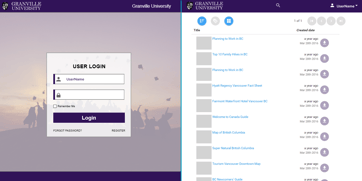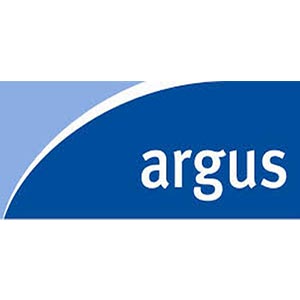Customers pay your associations for education and certifications, but, what happens when those training materials become freely available online?
The Benefit of Protecting & Controlling Trade Standards Documentation

Does your trade standards organization or association have an ironclad digital rights management solution in place? If not, you could be subjecting yourself to potential piracy, leaks, and unauthorized access to the very content you sell or distribute to your members including individuals, corporations, associations, and academia. In this post, we’ll dive into the importance of document rights protection and the need for encrypting your valuable digital assets.
Why Protecting Your Digital Assets Matters
Organizations such as the American Concrete Institute (ACI), National Fire Protection Association (NFPA), and Glass Association of North America (GANA) work tirelessly to develop standards, guides, reports, articles, and other resources for their members and high-value clients.
Each of these digital assets you create and sell individually or as part of your memberships are valuable pieces of intellectual property that companies like yours, use to generate revenue. Without a digital rights management (DRM) solution in place, that valuable IP can easily be shared. This not only hurts your organization and those who paid for access, but it makes buyers and potential buyers less likely to purchase in the future as well.
If you don’t think this can happen to your organization, you’d be wrong. Without a DRM solution, a leak to unauthorized users is as easy as sharing a link, saving a file to your corporate network, or uploading a document to the web. Picture this scenario:

You and your team at the National Electric Standards Association* have released the latest standards for wiring and installation for commercial properties for electricians in the United States. Steve is an electrician that runs his own business in Louisville, Kentucky and he pays $500 for the annual membership to your organization to receive all the latest guides, reports, etc… including this new standards guide. He is also a member of several private networking groups including one on LinkedIn that boasts more than 20,000 professional electricians nationwide.
With the release of your company’s new document, Steve has important knowledge that he feels the other members of the networking group on LinkedIn should know about. After all, he just wants to help his fellow electricians, and since they aren’t his competition in Louisville, he doesn’t see the harm in sharing a link to the guide with his group. It’s a private group, so it’s no big deal. Right? Wrong! With that single share, your organization just missed out on the potential of at least 20,000 new members, which at $500 for the standard, that equates to $10M in lost revenue! But, it doesn’t stop there.
The organizer of the group, Nathan in Seattle, loved the guide so much, he shared it with his public network of contacts too. Now, that link is spreading like wildfire across several different groups on LinkedIn, and Facebook, as well as a forum on Reddit for electricians. Before you know it, thousands of people are reading your guide, and none of them are paying your company for access to it.
If you had a quality DRM solution protecting your content, none of these shares would have happened. At most, Steve could have accessed the file with his unique link, and then told others about the new guide, and directed them to how to purchase it directly from you. This is a much better way of distributing your revenue-generating content because it ensures that only the people who have paid for access are able to see it.
Once you decide it’s time to protect and control access to your IP, you might wonder what the best method for safeguarding it is. The simple answer is to purchase and implement DRM software. However, you need to be careful about the software you use. After all, they are not all created equally. The question is, how do you choose the right one for your company’s needs?
Questions to Ask When Choosing DRM Software
The truth is, it can be difficult to choose the best DRM software for your organization. That is until you start asking the right questions. Below are just a few of those questions you should consider when picking the best digital rights management software for you.

Does the protected content require plug-ins or 3rd party apps for the user to download?
You want to choose a solution that doesn’t impose restrictions such as the need to download a plug-in or 3rd party app before they can get access to your content. Not only is this tedious for them and adds steps in their process, but many people work in organizations that have strict IT policies that don't allow them to download plug-ins or apps on their computers. It’s best to have software that allows your users to access their content seamlessly, on any device without the hassle of downloads.
What controls are available in terms of document security, and the security of other files?
For example:
-
-
-
Do you have the ability to set time restrictions and expiration dates on your content? If a subscriber cancels their membership, you’ll need to be able to revoke access easily, and ideally through an automated way with a DRM policy in place.
-
Can you block certain locations and/or IP addresses from viewing your files? Measures like this can help prevent bots, cybercriminals, and unauthorized users from gaining access.
-
What about copying and pasting restrictions as well as printing restrictions? Do those exist with the software you’ve chosen? If not, there is a higher chance that your intended audience could still share your content with unauthorized users.
-
Can you limit the number of devices or browsers that someone can open the content on? This can help reduce unauthorized file sharing and help you upsell multi-user licenses and corporate licenses.
-
-
Does your chosen software give you the ability to track user activity?
This ability can be invaluable to your organization. By tracking user activity of your content, you can learn which digital assets resonate the most with your intended audience. For instance, a quality DRM solution such as Vitrium allows you to track who opened which standards document and when, how many times they opened it, and from which IP address or type of device. You’ll be able to see what percentage of your users print your documents as well.
Vitrium also distributes both a protected PDF file and a secure web link, which gives you the ability to track which method is more popular among your user and subscriber base. If you see an increase in the use of the web viewer for example, perhaps you’ll want to feature this method more prominently on your storefront page.
Can the DRM software scale for your size and offer APIs to automate your processes?
Many DRM solutions on the market today are suited for smaller businesses that may only need to protect a few documents or distribute to a smaller number of users, so if your organization distributes thousands of documents and you have thousands of users, be sure to ask about the performance of the software at those levels and better yet, ask for reference customers that you can speak to. Also check to see if the DRM software has APIs, preferably industry-standard APIs such as REST that you know can be integrated to your back-end e-commerce or subscription management systems.
As a larger organization, automating your content protection processes will be key. And lastly, be sure to find out if the DRM software can offer you single sign-on access for your users. This way, your users only need to log into one system - yours, whatever that might be. And when the user clicks on the secure web link or protected file, that document will open automatically for them. In this way, your customers might not even realize the standard is document protected at all!
A Word to the Wise
Do your homework before selecting a digital rights management solution for your business.
This is far from an exhaustive list of questions you should think about before choosing the DRM software your organization implements. Nonetheless, we hope it has you thinking more seriously about the protection of your company’s IP and the control of access to it.
While you’re weighing your options, we hope you will consider Vitrium Security. We work with hundreds of organizations that trust us to protect their revenue streams. Click here to learn more about us.
*Fictional organization for demonstrative purposes only.





